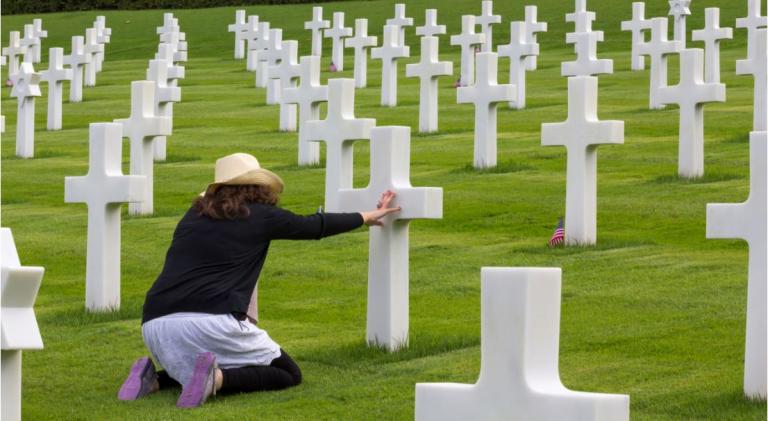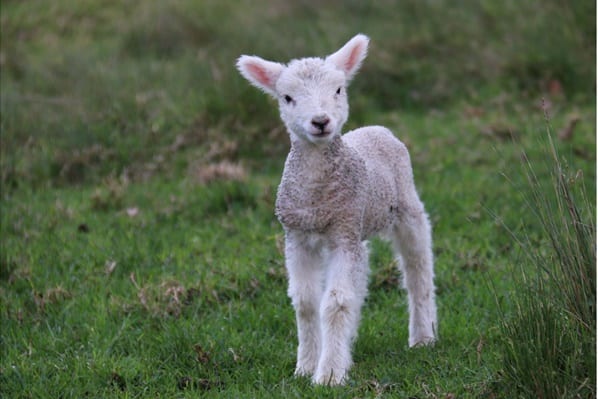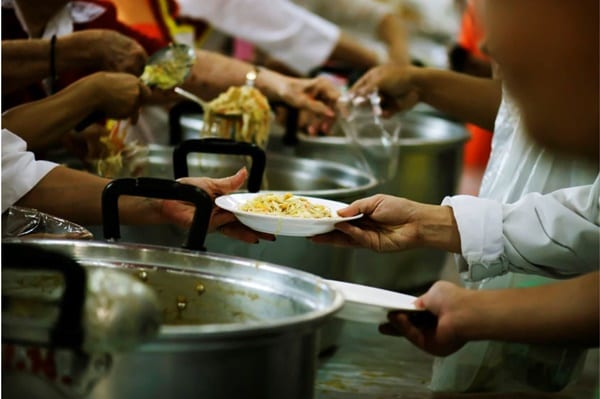Love on Armistice and Veteran’s Day
We are, all of us, without exception or qualification, infinitely and unconditionally loved by Love’s own Self, in whom we were made for the sole purpose of magnifying love throughout the whole world.
I begin here on Veteran’s Day, on Armistice Day, because this is the truth in which I anchor all my turbulent emotions on this day of immeasurable sorrow and unquantifiable hope.
It is in light of the truth of universal, unconditional love, and our solemn duty to love one another, that I can at once observe both Veteran’s Day and Armistice Day.
Lamenting the Conversion of Armistice Day to Veteran’s Day
As a pacifist, I continue to lament the conversion of Armistice Day to Veteran’s Day, especially in an era when wars never end. In the United States, the nation with the world’s largest military footprint – with an unprecedented number of bombs falling in seven countries, deployment in 150 countries, and nearly 800 bases worldwide – our wars go largely unquestioned and forgotten by the vast majority of citizens. I lament election cycles that bleed one into the other with little mention of foreign policy except the bipartisan reassurance to the masses that “defense” will be a top priority. I lament the lack of imagination, creativity, willpower and energy to even speak of nonviolent conflict resolution or prospects for prosperity through peacemaking. I lament our acquiescence to a budget that continues to allocate more and more money for tools of destruction and death while slashing funds for social good. I lament our culture’s faith in war, our glorification of war, and our proliferation of the weapons of war around the world and in our own streets. And I lament the lack of attempt by our leaders to connect the violence around the world to the increasing violence at home, even when the rotten fruits of this vicious cycle of violence stare us squarely in the face.
So I have, in the past, refused to acknowledge Veteran’s Day, wishing instead to honor this day as a day to work for peace throughout the world. Because honoring the service of veterans is so often conflated with justifying and even glorifying war, and because celebrating peace through victory is self-defeating, I wanted to separate the ideas of Veteran’s Day and Armistice Day.
Woodrow Wilson’s original Armistice Day proclamation ends with noble intentions behind words that have been belied by history:
To us in America, the reflections of Armistice Day will be filled with solemn pride in the heroism of those who died in the country’s service and with gratitude for the victory, both because of the thing from which it has freed us and because of the opportunity it has given America to show her sympathy with peace and justice in the councils of the nations.
The sacrifice of the soldiers in World War One did not free the world from war. The war to end all wars didn’t… because war never can. Freedom has never come through violence, and peace has never come through force. Positive gains for nations and the world have followed wars, but it is my sincere belief that those gains would have come faster and been greater and more sustainable through nonviolent struggle. Victories that come at the expense of others are broken and incomplete and often lead to violence down the road. A peace that comes at the expense of victims, a peace that comes at the price of dehumanizing, a peace that comes at the cost of shooting and bombing those whose names are never known and whose stories are never heard… is not peace at all. And the conflation of victory with peace has led to further glorification of war and a lack of will and imagination for true peacemaking.
For all of these reasons, I believe the original Armistice Day proclamation foresaw the seeds of its own destruction by glorifying a mythical means to peace that could never truly make peace. And thus while I want to celebrate the end to all wars, I believe that to do so we must separate the ideas of ending war and glorifying the participation in war.
The Lie of War and Its Consequences
Nevertheless, today I remember veterans. Because when the only path to peace is through love, we must remember the humanity and struggle of all affected by war. So today, I am remembering veterans. But I am also remembering victims. I am remembering “enemies.” I am remembering conscientious objectors who travel to warzones without weapons to build peace through relationship-building. I am remembering those who literally hammer warheads to symbolically beat them to plowshares, and those who burned draft files because they could not conceive of burning children.
Veterans experience physical, psychological, and spiritual consequences of war: spilled blood, broken bodies, families torn apart, and wounded souls. The people in the nations in which they fight experience all of this as well, and the further tragedies of land and infrastructure and economies destroyed, the poverty of destabilization, epidemics, displacement and refugee crises. Soldiers may protect some, but they kill others, and inevitably innocent lives are taken and destroyed. A good soldier may do more good than harm, but wars inevitably do more harm than good. Evils of prejudice and bigotry, as well as the dehumanization of rape and exploitation, are exacerbated by war. Intentions of soldiers may be humanitarian and just, but wars can never be. For no war has been motivated exclusively by pure intentions, but always by some degree of greed or powerlust masked under a veneer of nobility. Furthermore, wars are founded on the lie that for some to live, others must die.
But soldiers are not the only ones who fall prey to that lie. That lie has swayed humanity from the foundation of the world. Girardian theory posits that humanity itself was born in violence, because our converging desires inevitably led to conflict as we fought over limited commodities. We fail to see our commonalities and propensity for cooperation in the midst of our violence when we fight over possessions or exclusive claims to the truth.
Violence is so entrenched in our human DNA that most of us believe in it. The United States, in particular, glorifies it in patriotic drumbeats and waving flags and stories of victory and freedom gained through sacrifice. The United States presents militarism as the only solution to human rights atrocities and the only protection against infringements on liberty. Some who enlist in the service are compelled by poverty – which itself is a consequence of a violent nation that invests more resources in war than people. Others volunteer out of a sense of moral duty to serve and protect. For the virtues of courage, protectiveness, and self-sacrifice, soldiers have my gratitude. But the lie that lives must be taken for others to live – that is on the shoulders of all of us, not soldiers alone.
When Wars Come Home
There is a cognitive dissonance to decrying violence at home and celebrating it abroad. Many soldiers, I believe, experience the pain of registering that dissonance, feeling it whether or not they identify it. Veteran Will Griffin points out that the epidemic of soldier and veteran suicides, at 20 a day, is at least partly a result of coming to grips with participation in destruction. But our entire culture participates in destruction, and the blood of veterans and citizens of other nations is on the hands of those who valorize violence from afar. The justification of violence is its own disease. Those of us who never see combat and go about our lives without the trauma soldiers experience but speak of the necessity or inevitability of war are carriers of the disease of violence nonetheless, falling prey to and contributing to the malaise of a war-sick culture.
And this war-sick culture inevitably takes its toll on us at home in many forms. Hate crimes are rising – racism, xenophobia, Islamophobia and antisemitism are increasing. Excessive militarization of the police floods the streets with tanks and artillery. Fewer resources for social uplift as money for housing, health care, education, recreation and the environment are all diverted to the war machine.
Furthermore, our culture is becoming increasingly distrustful as people arm themselves with more and more guns. I attribute our society’s insecurity and dependency upon guns, and even our epidemic of mass shootings, at least in part, to a culture that invests a majority of its discretionary spending on war abroad and puts little time, mind, or money into peacemaking. Mass shootings are products of a society that glorifies mass killing abroad and deploys bombs, drones, and airstrikes against enemies – whether they be leaders of hostile governments or simply civilians who show suspicious patterns of behavior on the monitor of a surveillance drone. They are products of a power elite that refuses to regulate guns because it depends on its own citizens’ faith in the goodness of guns in the right hands, even as it puts guns into all hands.
Peace activist David Swanson has researched the disturbing fact that several recent mass shootings, including the latest in Thousand Oaks, CA, have been committed by veterans. Swanson points out that a society that trains, equips, and praises soldiers for violence abroad bears responsibility for sowing violence at home. To me, this fact says less about veterans, who also often wake up to the true costs of war before most of the rest of us and often speak most passionately against them, and more about a society that does not consider how devaluing lives abroad inevitably contributes to the devaluing of lives at home. It speaks to the violence of our society that our wars are forgotten even as civilian casualties climb, and any humanitarian pretense to our wars is belied by the fact whistleblowers like Chelsea Manning are punished for exposing the targeting of civilians. It must be emphasized that, while we should study the ways violence may follow a veteran home from battle, (1) far more veterans hurt themselves than others upon returning from war, and (2) when our culture fails to even recognize the violence of our own wars, we can consider the blood of victims of mass shootings abroad and at home to be at least partly on our own hands. A society that glorifies violence on an international scale can hardly be surprised when its citizens turn to violence to resolve issues among themselves.
Healing a culture of violence at home is inextricably connected to healing the disease of war that so deeply infects all of us. We must awaken to our complicity with violence and acknowledge our collective responsibility for ending the wars that burden our veterans and harm people around the world.
[tweetthis]To heal a culture of violence at home, we must heal the disease of war that infects us. [/tweetthis]
Recognizing the Cost of War for Veterans and Victims as a Means to Peace
If we truly want to end war, we must love the people most affected by war. Veterans’ bodies and hearts and minds bear literal battle scars. But the violence they both confront and wield is the outward projection of our own nation’s deeply violent culture. We owe it to veterans to have the courage to repent of our nation’s warring madness. In addition to excellent comprehensive medical care for veterans, we should recognize that their healing is bound up with our own and admit our need to recover from the violence we wield. They, like the civilians killed, wounded, orphaned or rendered childless, impoverished or displaced by our own nation’s weapons, are the ones who bear the costs of our nation’s misguided glorification of war. We honor their courage and love of country, and repent of our weaponization of it, only when we work to create a world in which the scourge of war is transformed by the healing power of love.
Love begins to heal when we recognize that we are all equally beloved, no matter who we are, where we are, or what we have done. To face the fact that Love embraces our victims and enemies breaks our hearts open, only to be mended by the remembrance that we, too, are loved. Coming to grips with war means coming to grips with the violence we have wielded and recognizing the fact that putting the burden of wielding violence in our name on veterans is violence in itself. Love pulls us through the pain of self-realization and forgiveness of self and others into the hard, necessary work of building relationship and community and transforming conflict into cooperation. It opens our minds and imaginations to solving the problems that we currently exacerbate with our weapons.
There will only be a permanent armistice when we recognize and repent of the violence we do to veterans and victims alike. So while some observe Armistice Day and others Veterans Day, I observe both, and neither… I’d prefer to call this day, and the rest of my lifetime, Repentance Day, until such repentance ushers in true, lasting peace. May we have the courage to repent in love, that we never again authorize violence by anyone or to anyone in our name.
Image: Stock photo from 123rf.com.












